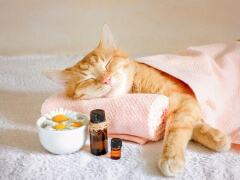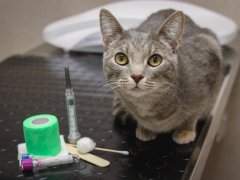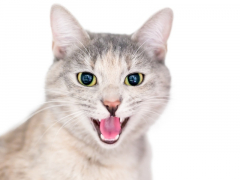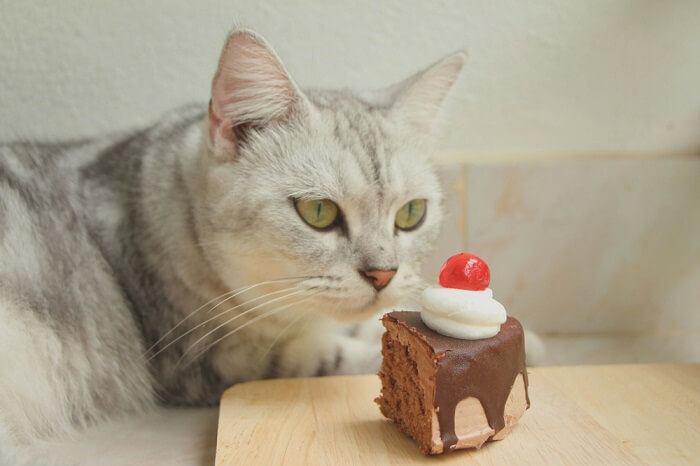
As a pet parent, you’re probably very familiar with the toxicity of the artificial sweetener xylitol. But what about other artificial sweeteners, like sorbitol? Are all artificial sweeteners poisonous to pets, or is sorbitol safe for cats?
About Sorbitol and Cats
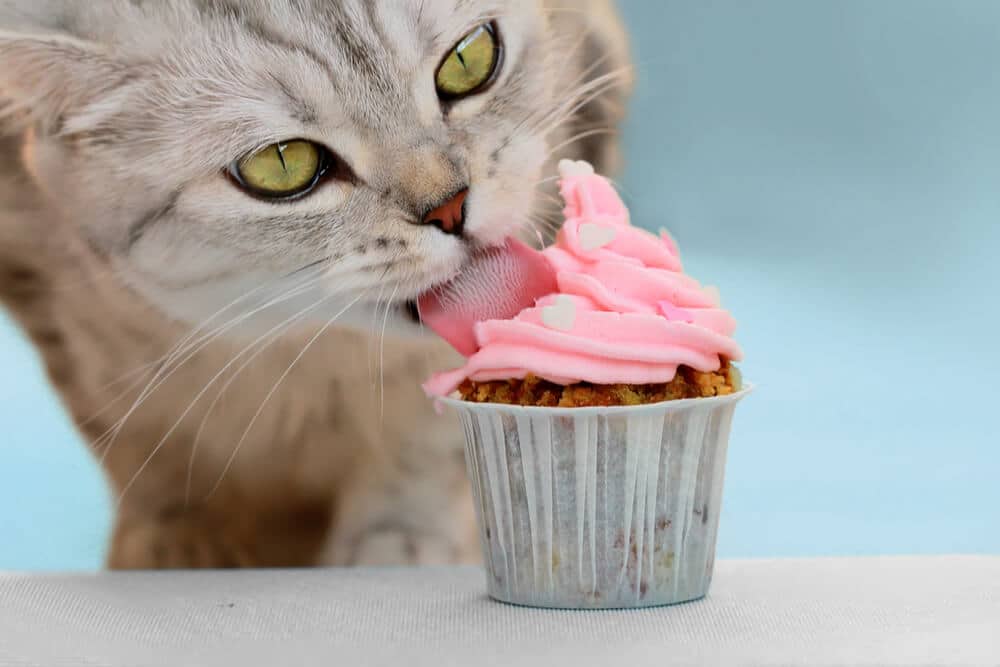
Sorbitol is a plant-based carbohydrate (sugar alcohol) that is added to many foods and medications as a sweetener. Although sorbitol is naturally produced in plants, it can also be artificially created through a chemical reaction with glucose, which is the way that most sorbitol is produced from corn syrup.
It’s thought to have about 60% of the sweetening activity of sucrose and also contains about a third fewer calories than sucrose, making it useful for low-calorie ‘diet’ alternatives. Because the human body absorbs sucrose very slowly, it makes a good sugar substitute for use in diabetic foods.
Cats don’t have a sweet taste receptor, so they’re unable to detect the sweetness of sorbitol. However, it’s still regularly present in things that cats consume, whether this is human food, cat food, or even dog food. Sorbitol is often added to these things for its food-preserving qualities, or as an anti-caking agent.
Like humans, cats are thought to digest some sorbitol, but not all of it. This means that excess sorbitol moves into the large intestine, where it is fermented by bacteria.
In small amounts, this is fine, but in larger amounts, it can cause abdominal pain and gas, fast gut motility, and osmotic diarrhea. ‘Osmotic diarrhea’ occurs because the undigested sorbitol draws water into the large intestine, which means it can also contribute to dehydration.
Where You Might Find Sorbitol?
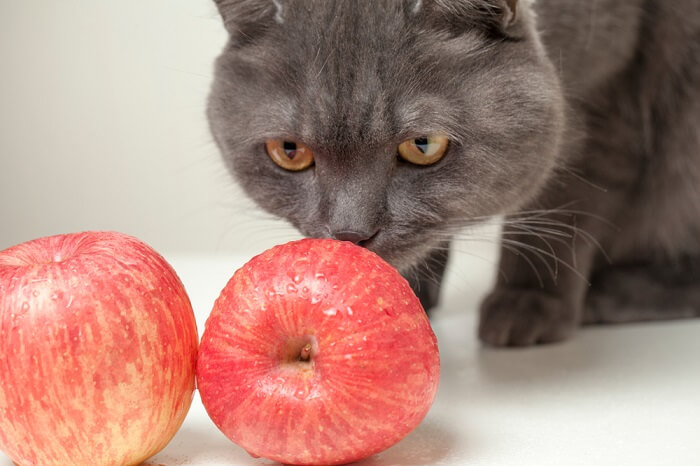
Sorbitol is often added to medications as well as to foods and drinks for human and pet consumption.
As a lower-calorie alternative to sugar, sorbitol is often present in low-cal, keto, and diet human food options. Foods created for people with diabetes may also contain sorbitol as it is absorbed less quickly and causes less of a rise in blood sugar levels than glucose sugars. Whilst sorbitol can be found in a huge range of products, it’s most prevalent in baked goods, where it makes a great sugar substitute.
Sorbitol doesn’t contribute to cavity formation, meaning it’s a common sweetener for sugar-free toothpaste and chewing gum. In fact, sorbitol is also used in pet toothpastes, so you may have already given it to your cat without realising! It may also be found in pet food, as it can help with product stability.
Sorbitol is also found naturally in fruits such as apples, avocados, cherries, apricots, and plums.
Is Sorbitol Safe for Cats?
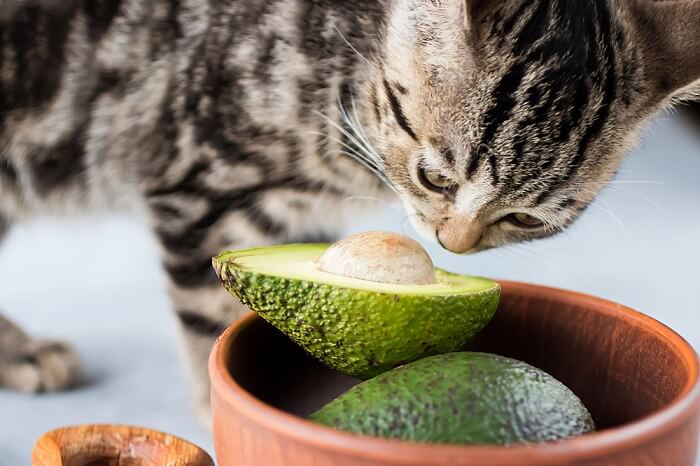
At normal doses, it appears that sorbitol is safe for cats.
Current evidence suggests that, at normal doses, sorbitol is safe for cats. It’s found in some cat treats and cat toothpastes and, according to the ASPCA, in small amounts it should have no effect. After all, we know that apples and various other fruits are safe for cats to eat, so it makes sense that the natural sugars in these fruits are not toxic to cats.
In larger doses, however, some side effects of consuming sorbitol might be noticed. The side effects of sorbitol mainly effect the digestive system. Whilst these include gas, abdominal cramps, and diarrhea, they are generally mild.
In fact, many vets use small amounts of sorbitol medicinally – sorbitol’s laxative effect can help prevent absorption of toxins that have been eaten and is often used alongside activated charcoal as part of an ‘oral decontamination protocol’ after poisoning. It can also be used in some cases of constipation.
In large quantities, it’s likely sorbitol’s effects would be more severe. If your cat has eaten a sorbitol-containing product it’s always best to check with your veterinarian or animal poison control to get the best advice for your cat.
It’s important to note that not all sweeteners are safe for cats. Xylitol is a very similar artificial sweetener that is extremely toxic to cats and causes hypoglycemia (low blood sugar) and liver failure, both of which can be fatal. Xylitol is often found alongside sorbitol in sugar-free gum, so double-check the ingredients if your cat has ingested chewing gum!
Also Read: Plants Poisonous to Cats: Toxic Plants to Avoid
Effects of Sorbitol for Cats
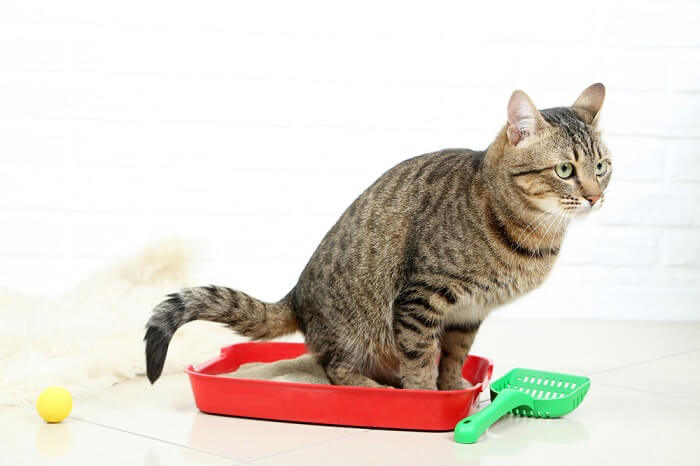
At excessive doses or if given to sensitive cats, sorbitol can have harmful effects on cats, including digestive irritation and upset.
In small doses, such as those found in toothpastes, it’s unlikely that sorbitol will have any effect on your cat. In larger doses, or for those who are very sensitive, sorbitol might cause gut effects such as excessive gas, abdominal pain, and diarrhea. It also occasionally causes vomiting.
Conclusion
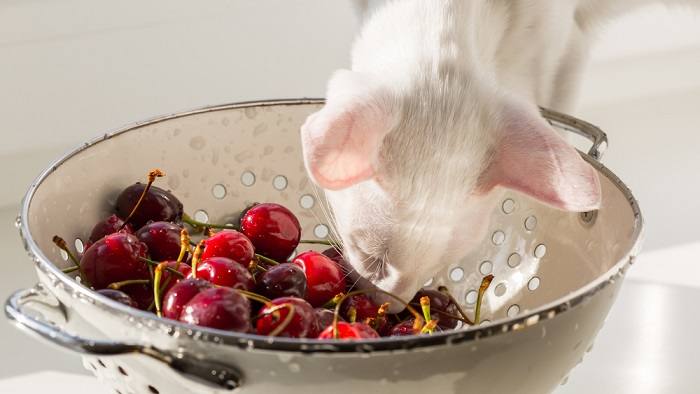
Sorbitol is not toxic to cats like xylitol is, and can be safely consumed in small amounts. However, sorbitol ingestion in larger amounts can cause stomach upset, and it’s not known how a very large dose would affect a cat. If you find your cat has eaten something containing a large amount of sorbitol it’s best to contact your vet for advice.
Also Read: What Can Cats Eat? 36 Human Foods Cats Can Eat – and 8 They Can’t!
Frequently Asked Questions
Is sorbitol safe for pets?
At common doses and those used in experiments, sorbitol has been demonstrated to be non-toxic for pets. However, it is a cathartic and can cause diarrhea, and in larger doses can cause vomiting, abdominal pain, and dehydration. These usually pass on their own and do not usually need veterinary intervention unless severe.
What sweeteners are toxic to cats?
The sweetener xylitol is toxic to cats and dogs. However, sorbitol, Stevia, saccharin and aspartame are thought to be safe in small amounts. However, cats should avoid eating sugary and sweetened products on the whole, as they can be fattening and cause other problems.
Is sorbitol bad for the liver?
There’s no evidence that sorbitol causes liver problems (Or other cases of sorbitol poisoning in cats) and it’s been classified as safe for human consumption by the FDA as well as other similar agencies worldwide.



